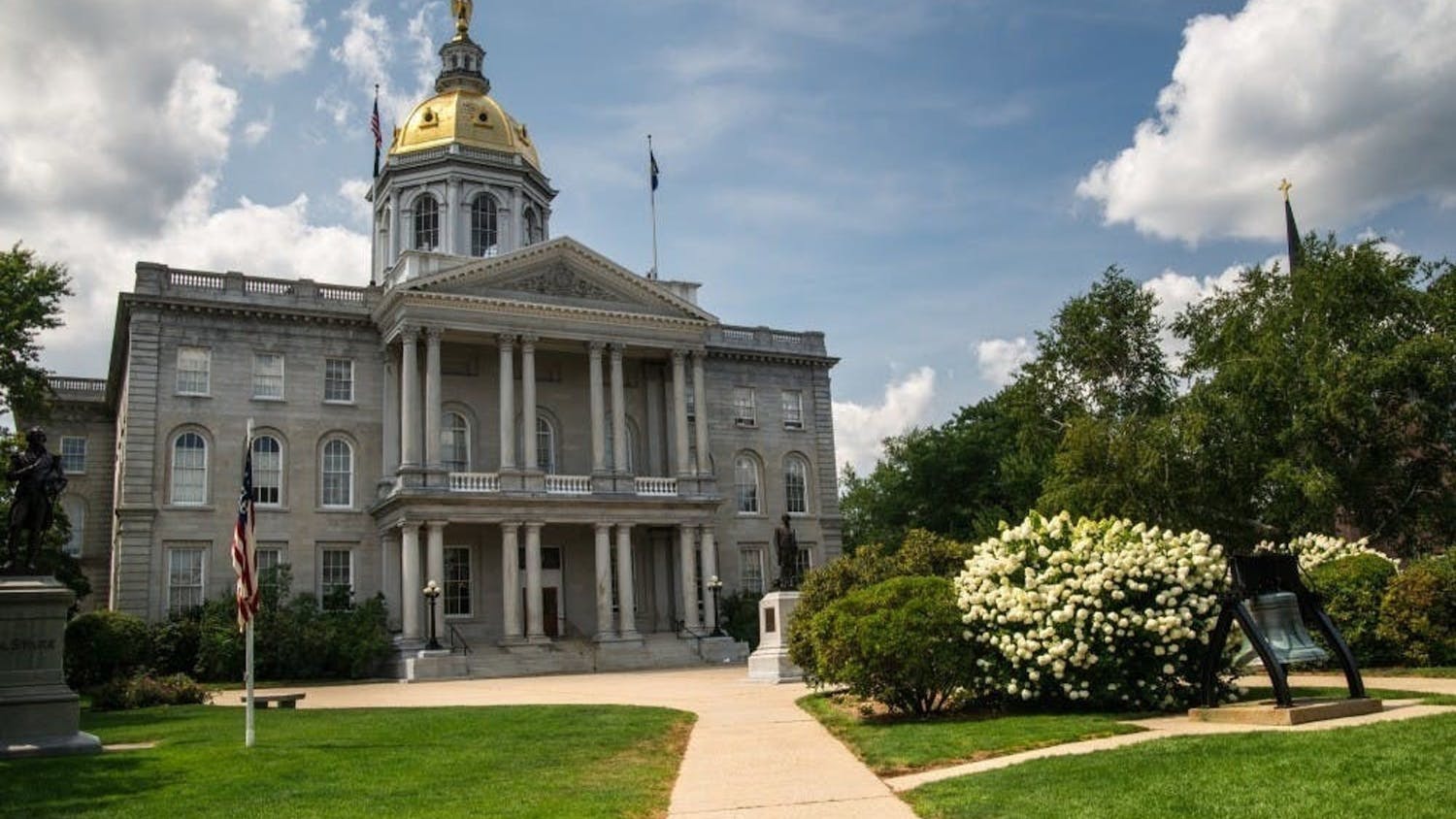If there is anything she regrets about working in fiscal policy, it is that the issue inspires such rabid disagreement, president of the Committee for a Responsible Federal Budget and head of the Campaign to Fix the Debt Maya MacGuineas said at the Rockefeller Center on Monday.
“Gosh, do I want to be done with dealing with fiscal policy — I want to go save orphaned animals where everyone is cuddly or nice compared to this,” MacGuineas said.
MacGuineas spoke alongside economics and public policy professor Charles Wheelan ’88 at a talk titled “A Conversation about the Federal Budget,” given in honor of William Frenzel ’50 Tu’51.
The Committee for a Responsible Federal Budget is a bipartisan, non-profit organization that spreads awareness about federal budget and fiscal issues. MacGuineas has also served as an advisor of budgetary issues for both sides of Congress.
Wheelan, who has authored popular books on economics and statistics, served as the Midwest correspondent for The Economist and founded the Centrist project, which aims to bring politicians toward moderate solutions on issues in fiscal, environmental and education policy.
Wheelan stressed in an interview that the Committee is bipartisan — the Committee does not describe the appropriate balance of cuts and tax increases, he said.
“It’s merely a platform for making clear that doing what we’re doing is not a viable long-term solution,” he said.
The talk focused on the problem of swelling federal debt, which, MacGuineas said, has been exacerbated by the lack of long-term solutions. Federal interest on bonds, MacGuineas said, is the fastest growing part of the budget. She said that if the interest were to increase by 1 percent, the budget would increase by $120 billion every year. Despite the heated emotional tenor of those involved in the issue, it is difficult to bring most American citizens’ attention to the issue.
“The reality is that no matter how fascinating you find this discussion, those of you who are students are not going to leave and join a million-man movement to fix it,” MacGuineas said. “I wish you would — it would be great — but there are a lot of pressing issues.”
MacGuineas said it is difficult to “personalize” fiscal problems — most people do not observe the effects of a growing federal debt, so they have little reason to become involved in lobbying for solutions.
MacGuineas described three causes that drive the imbalance of the federal budget — demographic aging, health care costs and federal interest owed on U.S. Treasury notes. Wheelan said that because the U.S. has spent so prolifically, there are ample opportunities for the government to make cuts without incurring significant harm. The biggest roadblock, he said, remains the politics involved -— policymakers must cajole interest groups and lobbyists to agree to moves that will lower the federal debt, even if that hurts their constituencies.
The Committee for a Responsible Federal Budget has a tool on its website that allows the user to test different methods of reducing the budget. Wheelan said that over the summer, former New Hampshire Senator Judd Gregg (R) visited a course, and, together, Gregg and the class tested cuts that made large improvements to the debt — but these cuts may have been unrealistic.
“We got the debt down to 60 percent of GDP in 15 minutes,” Wheelan said. “But as we did that, and afterwards, every time we did anything, [Gregg] would talk briefly about whatever interest group was going to firebomb our house.”
Wheelan and MacGuineas also discussed the federal budget in the context of the presidential election, describing each candidate’s views regarding the federal budget and debt.
MacGuineas said in an interview after the talk that discourse from political leaders is essential.
“Not that many people, like me, are going to read Congressional Budget Office reports and find them so scintillating they can’t stop,” she said in an interview. “But I do think there are people who have leadership skills who would be able to talk about it and explain the repercussions and unify the country in saying, ‘Here is a threat we have. Let’s come together and tackle it,’ and that’s where [the solution] would come from.”
Nico Turk ’19 said that the talk gave him more perspective regarding fiscal issues. A better-informed campus — and citizenry — he said, will have a greater chance arriving at solutions.
“I came here to gain more knowledge on the topic so I can be more informed, whether I’m voting, whether I’m in discussion with people or whether I’m influencing others,” Turk said. “It is one of the reasons I came to Dartmouth.”
Thomas Wang ’16, who said that he has been involved in the Campaign to Fix the Debt, noted that despite the issue’s importance, it is challenging to raise awareness. Education, he said, remains essential, but he also stressed the importance of creating a grassroots approach to inspire dialogue.



